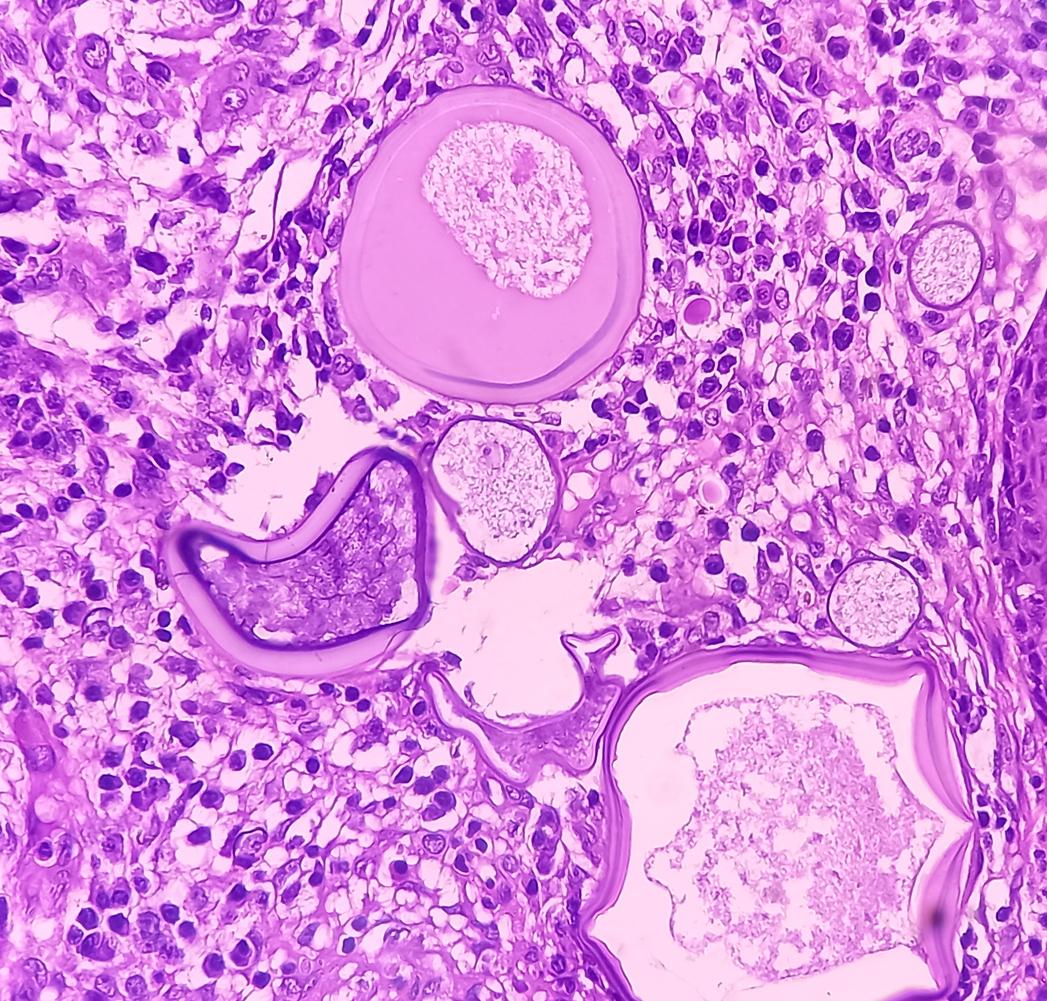Headaches and coordination problems… For her general practitioner, Karen Griffiths’ symptoms were those of menopause but in reality, the sixty-year-old had a benign brain tumor.

- A British woman suffered from headaches, speech impediments and tinnitus. For her doctor, menopause was the cause.
- In reality, she had a benign brain tumor called a meningioma.
- The tumor was removed by surgery and the sixty-year-old is now followed regularly.
The first signs appeared in 2018. Karen Griffiths, a British woman now aged 60, began suffering from morning headaches, impaired coordination and speech, and unilateral pulsatile tinnitus, which gives the feeling of feeling a heartbeat in the ear. When she mentioned her symptoms to her general practitioner, he told her that they were probably the consequences of menopause. Three years later, specialists detected a benign brain tumor.
Brain tumor: three years will be needed to identify the meningioma
“I suffered from these symptoms for over three years and it gradually got worseshe tells the British media Mirror. At the same time, I was going through menopause and it is well known that this can create headaches, brain fog and difficulties.” But in April 2021, her tinnitus became so strong that she decided to return to her general practitioner. She then consulted her replacement who prescribed an examination at the hospital. “The consultation I had was more in-depthbelieves Karen. He really listened to what I said. I could see his face darken as I explained that the unilateral pulsatile tinnitus was so loud that it woke me up..”
The mother underwent an MRI in the following days, and the examination identified a lump in the brain which was pressing on a major vein, the superior sagittal sinus. This lump corresponds to a tumor, which is a benign meningioma. “A meningioma is a meningeal tumorspecifiesHealth Insurance. It develops from one of the three membranes constituting the meninges – the arachnoid – and is implanted in another meningeal membrane, the dura mater..”
Meningioma: what are the main symptoms of this tumor?
Unlike Karen, some people have no symptoms from this tumor. “A meningioma can be asymptomatic and be discovered incidentally during an examination (brain CT or MRI) carried out for another reason., warns Health Insurance. The main signs of the tumor are neurological. “They depend on the location of the meningioma and are caused by the compression of brain structures by the tumordevelops the organism. They are not specific to meningioma, but can be a signal.” Typically, these symptoms come on gradually, as in Karen’s case where they intensified over time. This can be headaches, problems with vision, speech, sight, memory or more generally behavior. Some people experience weakness in their arms or legs, loss of balance, sense of smell or hearing. Finally, meningioma can also trigger epileptic seizures.

Brain tumor: how is a meningioma treated?
The disease can be the consequence of hormonal treatment, in which case it regresses or stabilizes after stopping the medication. This avoids surgery, which is the most common treatment for symptomatic meningioma. “Technological advances have improved the possibility of precisely localizing the tumor and defining its boundaries.indicates theHealth Insurance. They thus make it possible to avoid affecting functional and vital areas of the brain.”
In Karen Griffiths’ case, an operation was carried out in 2022 to remove the tumor, as it was in a major vein. “I still have seizures at night due to the location of the tumor and following the surgery, she laments. I also have MRI scans every year to see how the brain is doing and if the tumor is growing.” According to Health Insurance, surgery generally allows complete disappearance of the meningioma, but monitoring by MRI remains necessary.

















